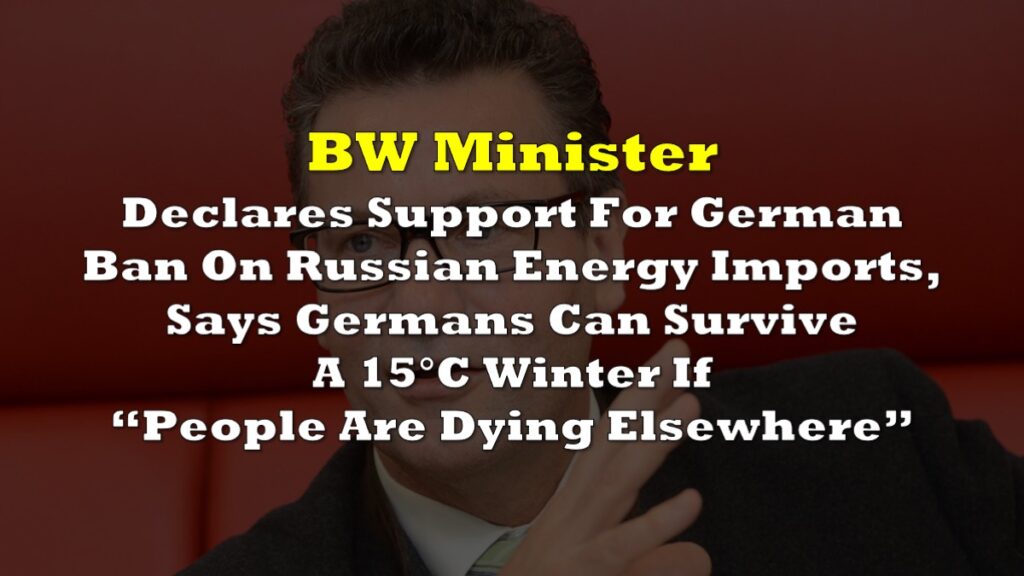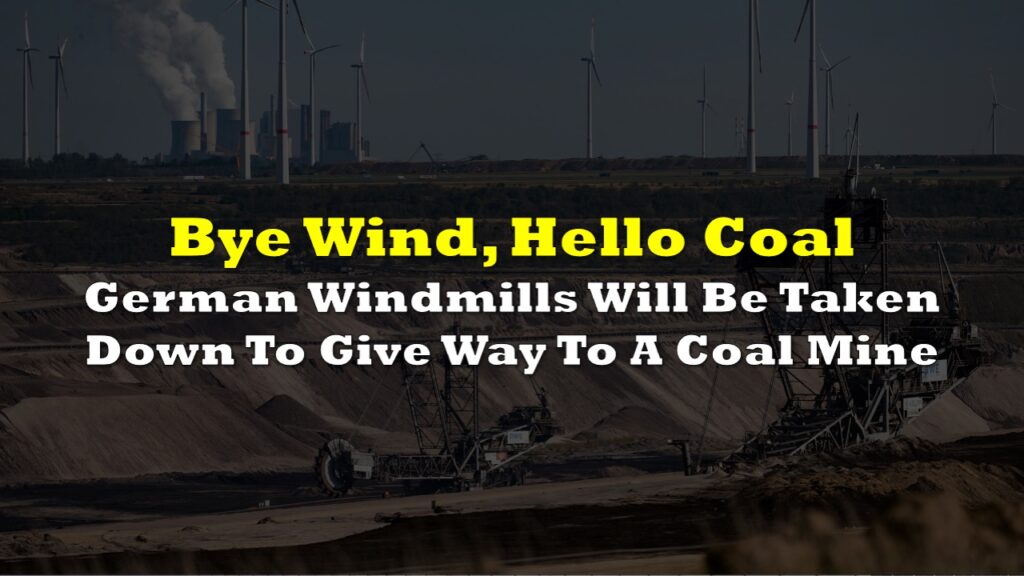Germany seems to be shoring up its energy reserves faster than its emergency plan as the country heads into the winter season.
German Economic and Climate Action Minister Robert Habeck said that the country’s natural gas reserves are expected to reach 85% of its storage capacity by September, a month earlier than its plan.
⚡️Die Welt: German gas reserves at 82% capacity.
— The Kyiv Independent (@KyivIndependent) August 29, 2022
Despite reduced delivery volumes from Russia, the German Economic and Climate Action Minister Robert Habeck says natural gas storage facilities in Germany will reach 85% capacity by early September, writes Die Welt.
“The reservoirs are filling up faster than specified,” Habeck said in an interview with German Der Spiegel magazine.
The government identified in its energy plan to have the storage facilities full at 75% by September 1 but the storage levels are already at 82.2%.
Berlin is fast approaching its target storage in preparation for winter despite the significant cutbacks from its gas imports from Russia–trying to dispel the characterization that the country is dependent on Moscow to keep the lights on.. Norway has taken over most of the country’s import needs.
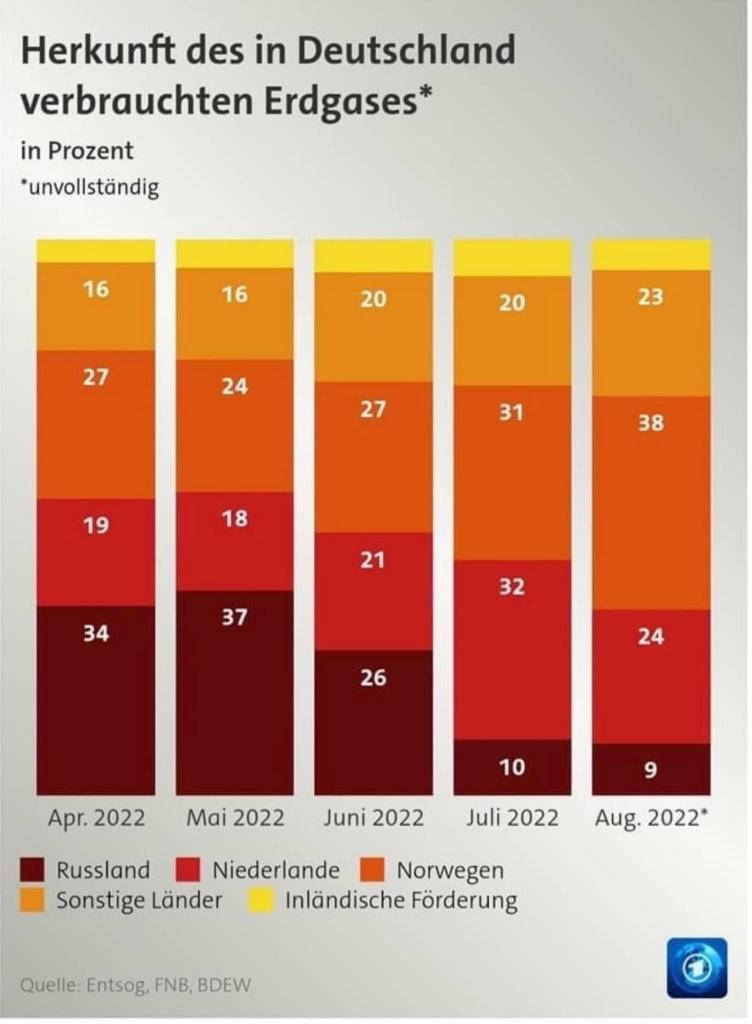
Following the news, natural gas prices in Europe tumbled to below €260 per megawatt-hour after its nearly 40% hike the week before.
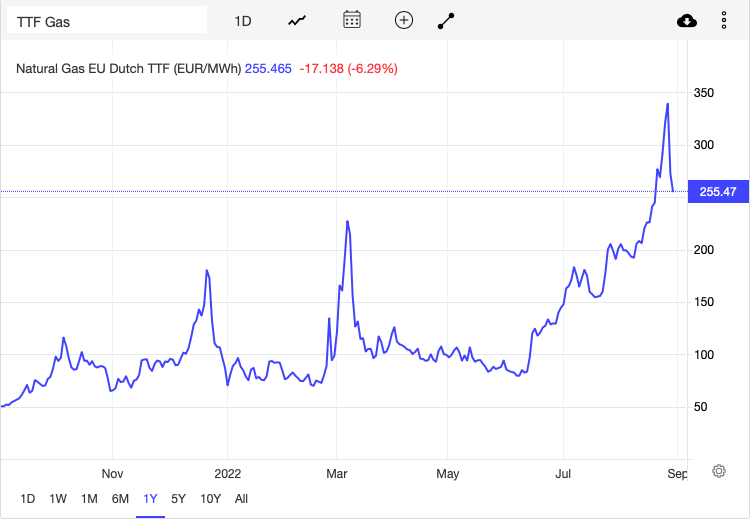
However, energy stability might still be far from reality beyond the coming winter. In a paper submitted by London School of Economics and Political Science’s Benjamin Moll, the “total German storage capacity of about 240 TWh is small relative to both inflows and outflows.”
“For example, the storage capacity equals “only” the gas consumption of about two winter months (120 TWh per month) and gas imports of about three months (80 TWh per month),” Moll wrote. He added that active inflows alongside the outflows could only extend the lifetime from two months to six winter months, given that winter consumption is higher than the inflow.
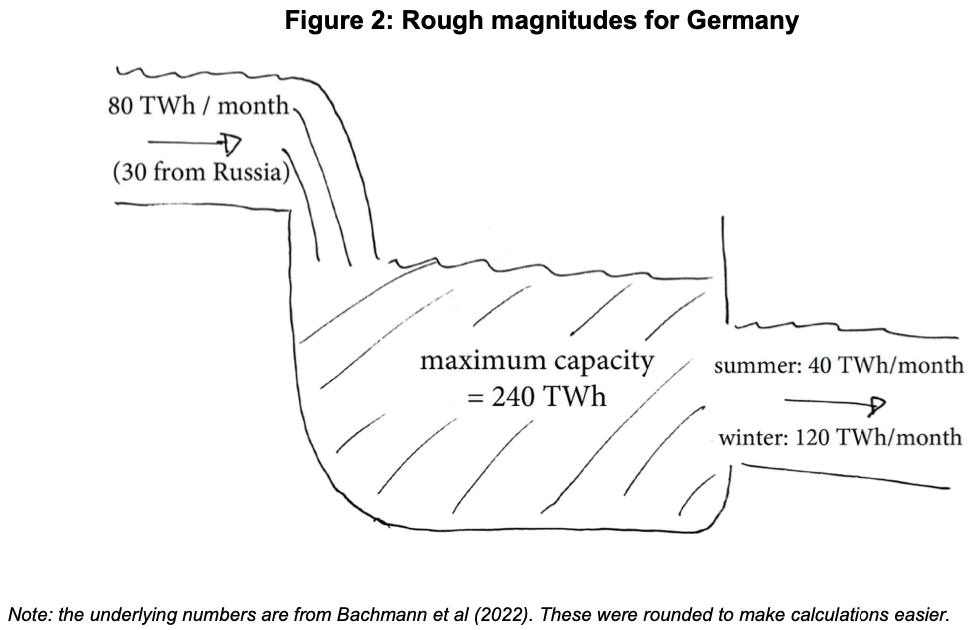
“The reservoir is simply not large enough. The large reduction in inflows means that even a reservoir at 100% capacity just isn’t enough to make it through the high-demand period,” he added.
Compounding to this problem, the recent ifo index has fallen for a third consecutive month, hitting 88.5 in August. Aside from it being the lowest level it has reached since the pandemic, the index also indicates a further shrinking of Germany’s economy in the third quarter.
Information for this briefing was found via Reuters and the sources mentioned. The author has no securities or affiliations related to this organization. Not a recommendation to buy or sell. Always do additional research and consult a professional before purchasing a security. The author holds no licenses.





